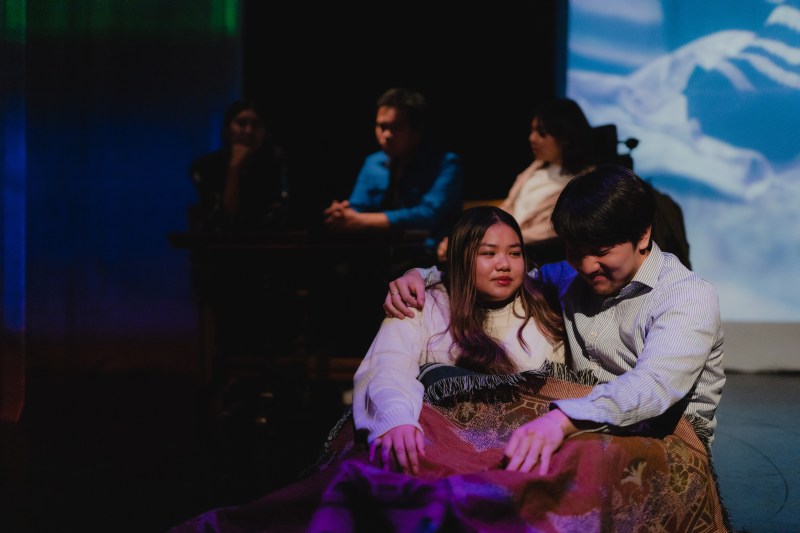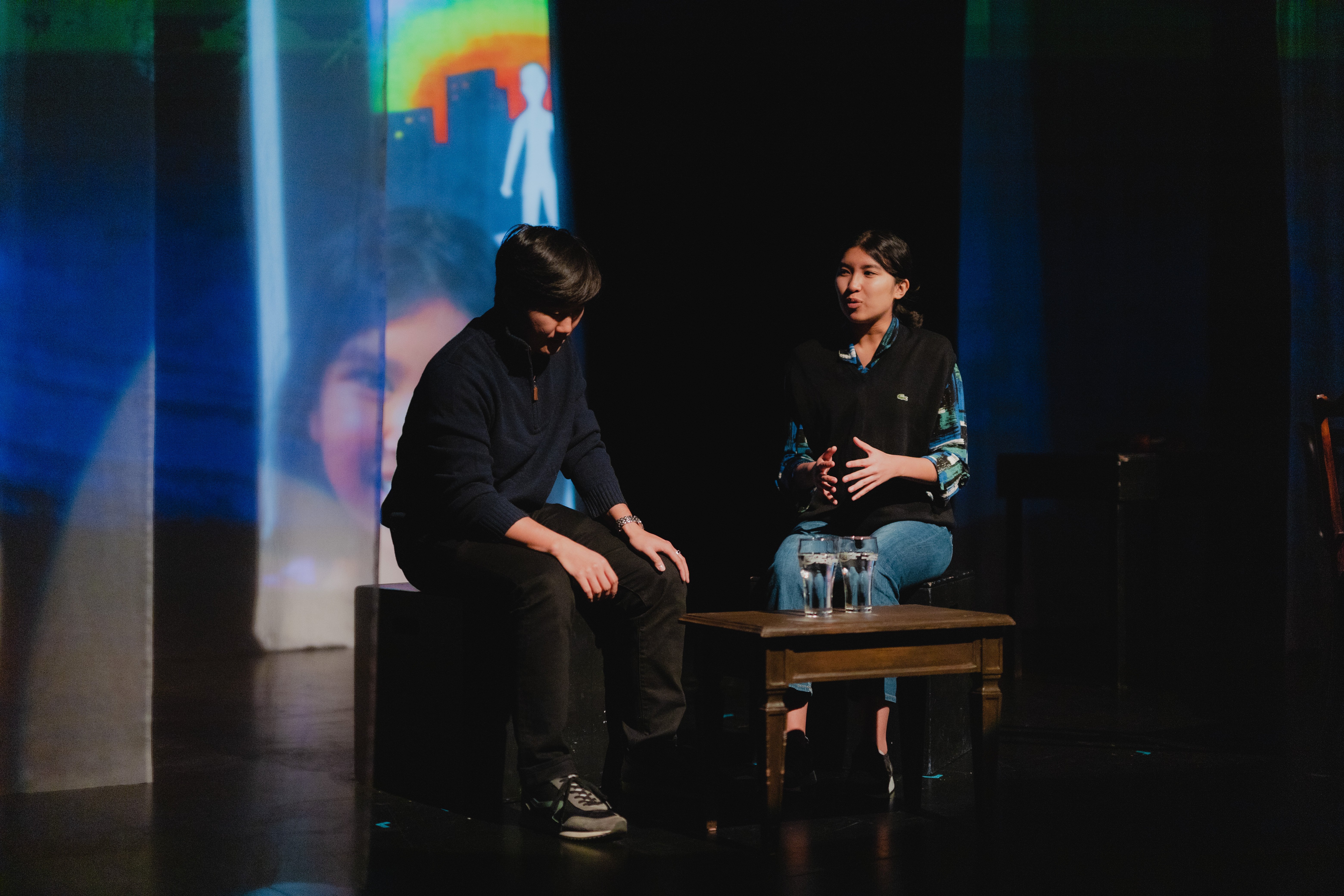What do nostalgic childhood memories of Bay Area hikes, hazy car rides through the crowded streets of San Francisco and the death of a father have in common? On Friday night, Asian American Theater Project (AATP) answered that question, transforming Nitery Theatre into the site of an unsolved murder mystery that explored identity and the complexities of Asian American family dynamics.
“THE HEADLANDS” was written by Obie-winning Berkeley graduate Christopher Chen and premiered by AATP this weekend. The show chronicles the journey of Henry (played by Francesca Fernandes ’25), a software engineer at Google who is determined to solve the mysterious murder of his father 20 years prior. The play follows Henry as he delves into his repressed childhood memories in search of answers.
His father, George Wong (played by Zhang Baihan ’25), a kitchen contractor from the Sunset district of San Francisco, was shot dead in his living room. The story that got out? It must’ve been a burglary gone wrong. Henry refuses to believe it. There has to be something more.
Was the home invasion staged? Was it suicide? Was Mr. Wong depressed? Did Mrs. Wong (played by Serena Tran ’25) have an affair? These are the questions Henry investigates with his girlfriend (played by Evelyn Kuo ’23) by his side.

The production combined theater and film to examine the nuanced concepts of home, family, love and the malleable nature of memory through the lens of an adolescent mind. The addition of the film screens on stage drew audiences into Henry’s childhood memories. Simple, raw images of the Golden Gate Bridge, the titular Headlands and the yellow kitchen counter all grounded the audience in Henry’s reflections and helped them empathize with him.
The incorporation of candid, unpolished film added to the vulnerability of the piece. The lack of saturation, along with increasing use of dull grays and earth tones, added to the bittersweet and moody parts of the play. Showing scenes and photographs just as Henry remembered them helped to create a verisimilitudinous space that allowed the audience to step into the intimate story in front of them.
The production aimed to shed light on the importance of Asian American representation in theater and film. Did it hit the mark? Yes, with startling clarity. The difficulties that Henry faced with his relationships touched on the hardships that come with the Asian American identity and confronting past trauma.
When asked what inspired her to direct this piece, co-director Sarah Lee ’23 mentioned that reading the play struck a personal chord for her and that she shared similar lived experiences with the characters. Although she was initially unsure whether the audience would be able to relate to the story as she did, she believed that the story has something for everyone. “The script is really giving,” she said.
“This is a very masculine play,” Lee added. “It aims to challenge the narrative of the generational handoff of masculinity in Asian families.”
The play ends with an emotional scene in which Tom (played by Lance Lee ’23), Henry’s long-lost brother and the murderer of his father, confesses his deeds to the audience. He had approached Henry’s home with the intent of shooting himself in front of his father, who abandoned him at his birth and refused future communications with him, but “a spell came over him,” and he turned the gun and shot George instead.
The play’s inclusivity of all experiences extends to the diversity of its cast itself. Lee made his acting debut in his portrayal of Tom.
“It feels different when you have the words memorized and you have to embody the character. I feel like parts of Tom have become parts of me,” Lee said, reflecting on his performance preparation.
He mentioned that one of his goals going into the show was “to make sure that the audience could empathize with Tom, because if you can’t, he’s just the guy who kills his dad.” Lee said that playing Tom has prompted him to see nuances in complicated personal interactions as opposed to “viewing things in black and white.”
The play reveals that there is so much more to family drama than the stereotypical nuclear family narrative, inviting the audience to ponder the role of justice in intergenerational trauma. “THE HEADLANDS” focuses on a single-child family and how parent-child relationships are influenced by past actions. Unlike most murder mysteries, this one is bittersweet because the audience empathizes with Lance’s well-executed character.
Co-director Andrew Yung ’23 has high hopes for the show’s impact on its audience: “If the play can impact people beyond the show subconsciously, it’s a success, because individual stories are so important.”
Complete with identity crises, relationship battles and comedic relief, “THE HEADLANDS” is a play to remember. The actors performed skillfully, drawing the audience into Henry’s world.
The moody lighting and screens worked together to create a dynamic set that reflected nostalgia, despair and hope. Henry’s engaging first-person narration, coupled with the background film and the intimate setting of the theater, never allowed for a dull moment.
In the end, who doesn’t love a good murder mystery?
Editor’s Note: This article is a review and includes subjective thoughts, opinions and critiques.
